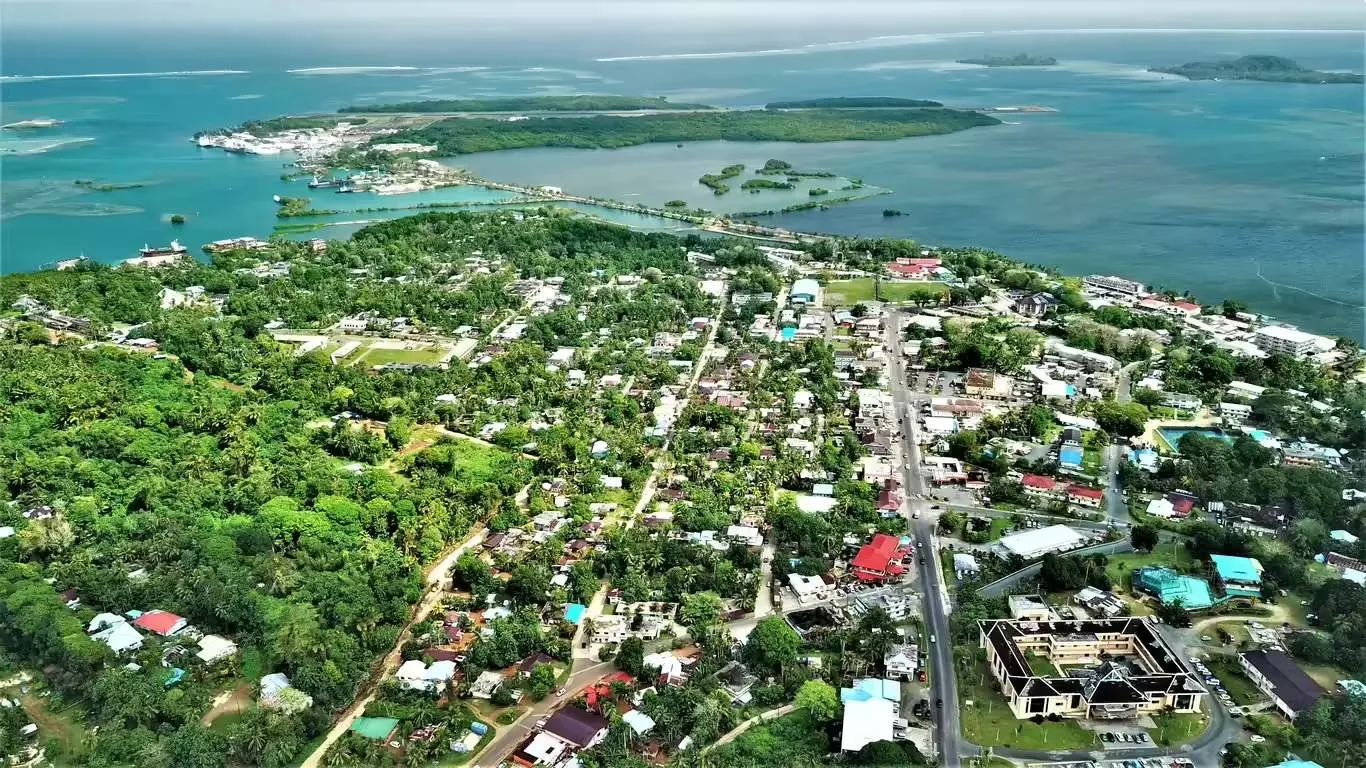In a world racing forward with technology and towering skylines, there exists a tiny nation that still feels untouched—pure, raw, and heartbreakingly real. The drowning nation no one is talking about Kiribati. A place where laughter rings true, where time bends unnaturally, and where the ocean gently—and sometimes violently—reminds its people of their fading future. Today, We are traveling to the first country of tomorrow before it’s gone.
Welcome To Kiribati...!!
A Country You Can Cross in an Hour
Nestled deep in the heart of the Pacific Ocean, Kiribati (pronounced Keer-ee-bahs) is unlike any other country on Earth. It’s so small, so narrow, and so remote that you can drive across the entire capital in under 60 minutes. The road is the country. Literally. A single two-lane strip of asphalt weaves through Tarawa, its capital, surrounded by shimmering blue waters on both sides.
But beyond the postcard beauty lies a sobering reality—Kiribati is slowly sinking.
Where Time Begins—and Ends
This is not just any remote island. Kiribati exists on UTC +14, the most advanced time zone in the world. It’s the first country to welcome the new day and the new year. So influential is its position that the International Date Line bends around it, creating a sharp zigzag in global timekeeping.
Kiribati engineered that quirk in 1995, moving the line eastward so the entire country could celebrate the same day—together.
It’s poetic, really. The first to see tomorrow might never see the distant future.
The Long Road to Nowhere—and Everywhere
Getting to Kiribati isn’t easy. After landing in Fiji, one of the only routes available, I paid nearly $2,000 for an economy seat to Tarawa. Flights come just three times a week. Isolation is a lifestyle here—and a growing threat.
Upon arrival, the contrast is stark. One side of the road offers an endless lagoon so vibrantly blue it looks unreal. On the other side, cracked seawalls attempt to hold back a rising ocean.
The country’s highest point? Three meters above sea level. Most of it hovers at just one. Locals have never seen a mountain—and probably never will.
Where Climate Refugees Are Born
Kiribati: The First Climate Refugees Of The 21st Century. "Climate refugee" is a term often used in academic debates and political speeches. But in Kiribati, it’s personal. The term originated here, where the threat of losing one's homeland isn’t hypothetical—it’s imminent.
Frequent floods, eroding coastlines, and saltwater intrusion have forced the government to purchase land in Fiji and begin planning for the future—abroad. The people of Kiribati may soon become a nation without a land, scattered across foreign shores.
Mangrove forests now line parts of the coast—natural protectors fighting erosion. But they may not be enough. People are adapting, but the clock is ticking.
Daily Life in a Drowning Paradise
Despite everything, life here moves with a beautiful slowness.
Children walk barefoot home from school. Markets sell octopus and coconuts by the roadside. Families gather by the lagoon for barbecues and sunsets. There's only one mall, one sports hall, and one amusement park (now abandoned). The fanciest restaurant in town? A humble Chinese eatery with receipts printed in Mandarin.
And yes, the "entire capital is still just one road".
Speed limits max out at 60 km/h, but no one’s in a hurry. Time feels different here—not just because of the time zone, but because life is savored in moments.
A Past Scarred by War, A Future Scarred by Water
Kiribati’s story is one of resilience. Once a British colony, it gained independence in 1979. It was a battleground during World War II—remnants of bunkers and debris still dot its beaches. The islands were also sites for nuclear testing, another brutal legacy of outside powers.
Today, Kiribati survives on foreign aid and diplomacy. Once allied with Taiwan, the country has now aligned itself with China—decisions shaped not just by politics, but by survival.
Leaving with Heavy Feet and a Heavy Heart
As I took a boat north of Tarawa to visit nearby islands—reachable only by sea—I was struck by the raw beauty and fragility of it all. Children playing under palm trees, elders gathering under culture houses, locals fishing barefoot in paradise. It felt untouched. Sacred. But that’s the tragedy. It’s being touched now—by the sea, by climate change, by time.
Kiribati, A Vanishing Nation At The Edge Of Time Why? Because Kiribati is a place of contradictions: the first to greet the sunrise, yet the first at risk of vanishing. It’s a land of laughter and looming loss. A nation that teaches us that climate change isn’t a future threat—it’s a present reality.
Before it disappears, the world must listen.
Have thoughts on climate justice, disappearing nations, or island life?
For more powerful insights into technology, history, science, technology, current events, travel stories, entertainment, supernatural, and beyond — visit www.storyantra.in



.webp)
.webp)
.webp)

.webp)

.webp)
.webp)


0 Comments